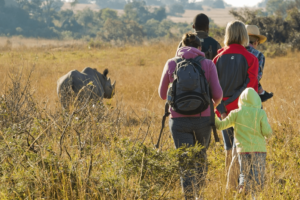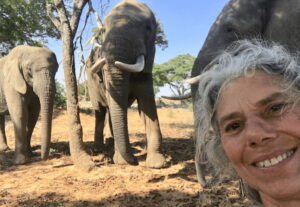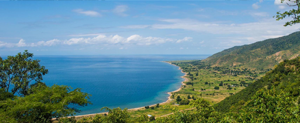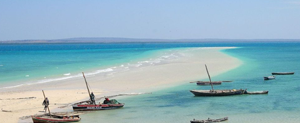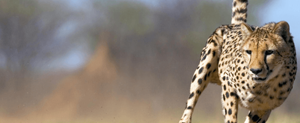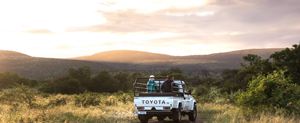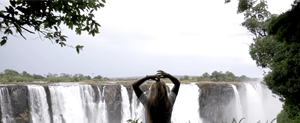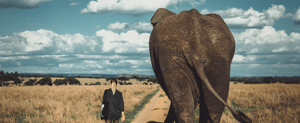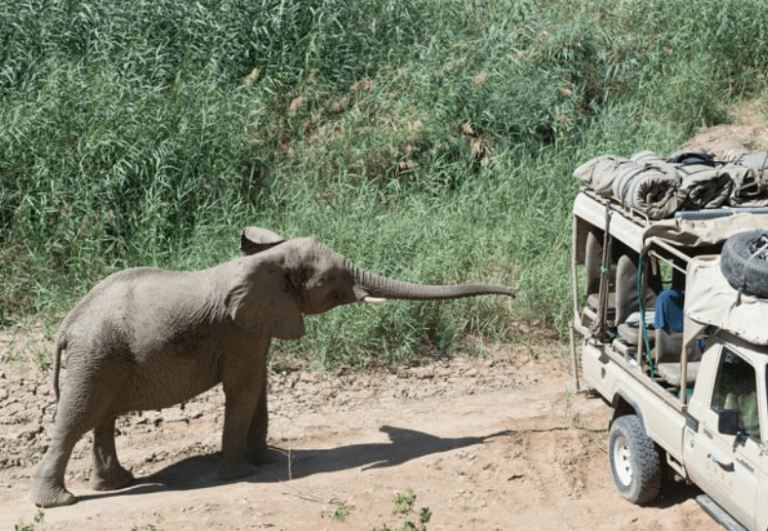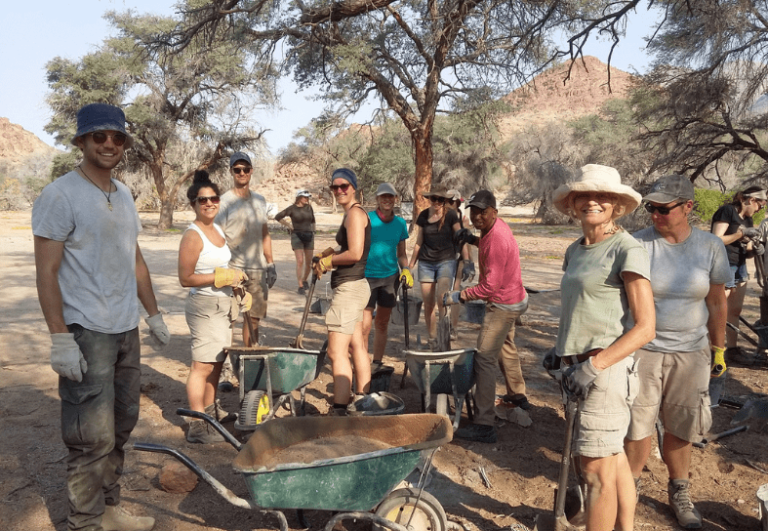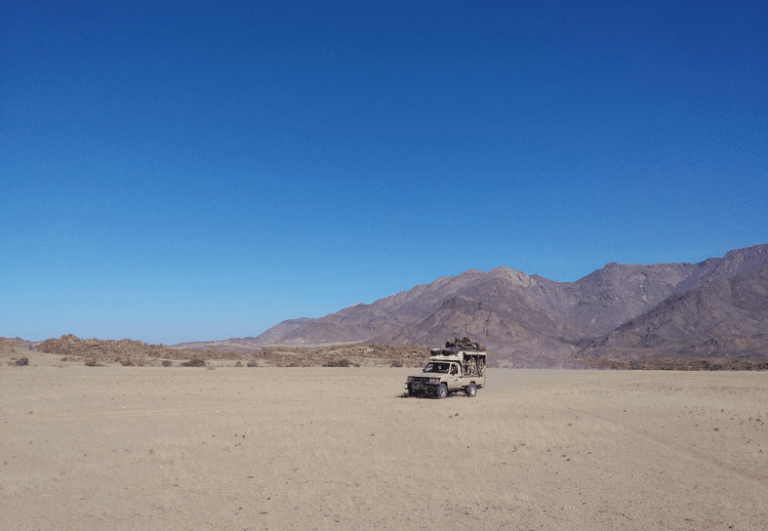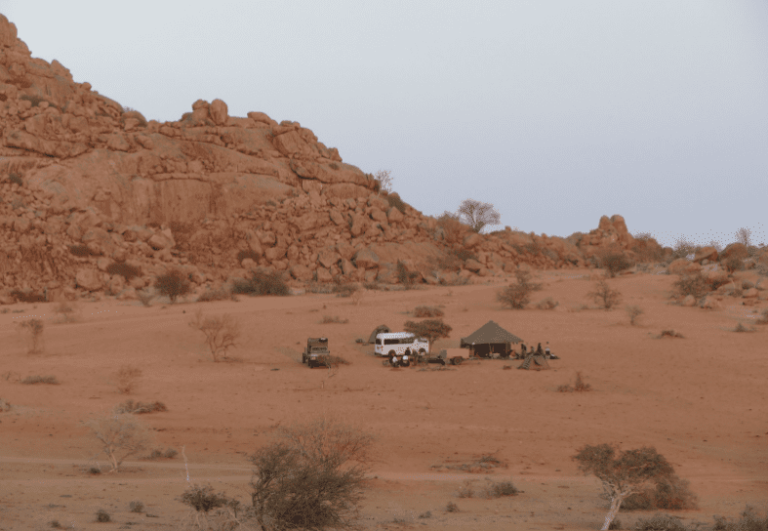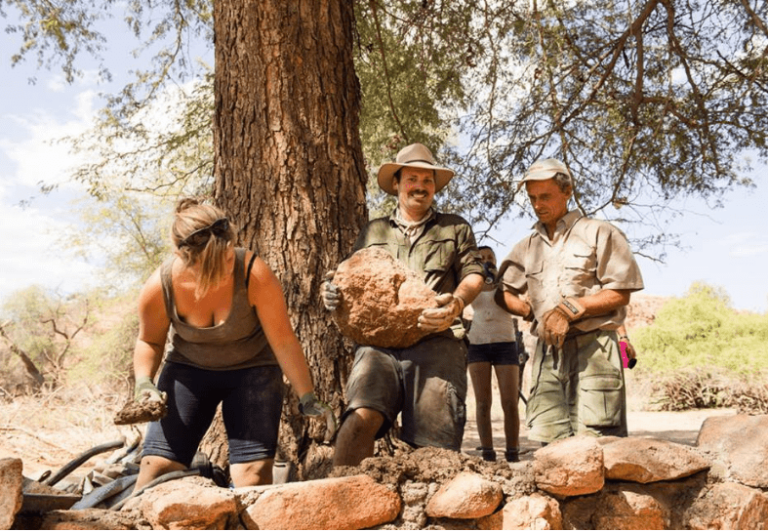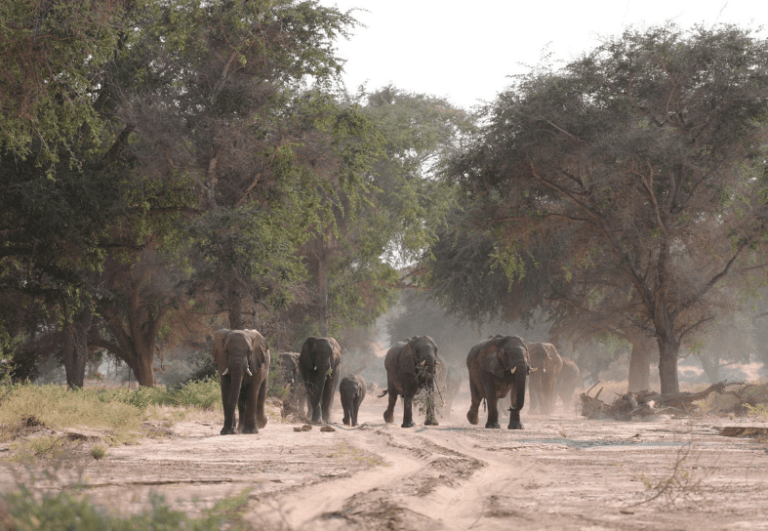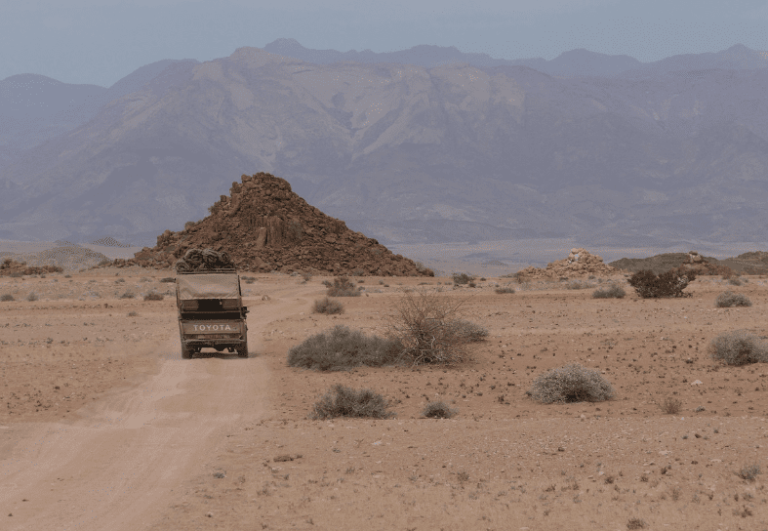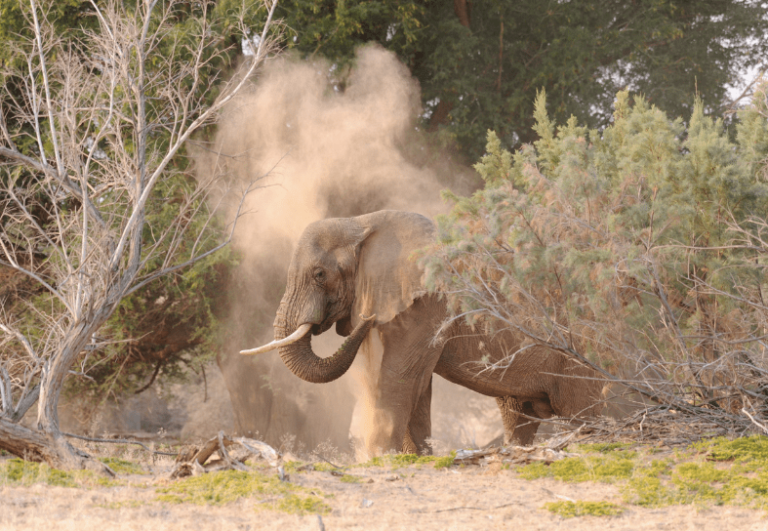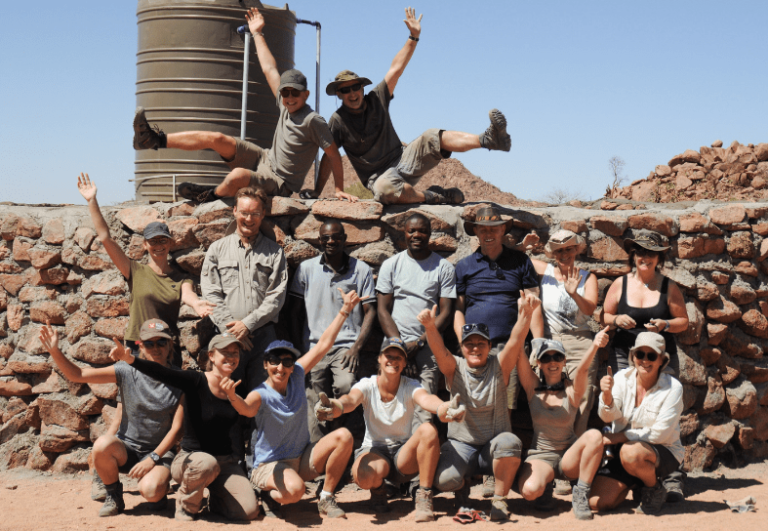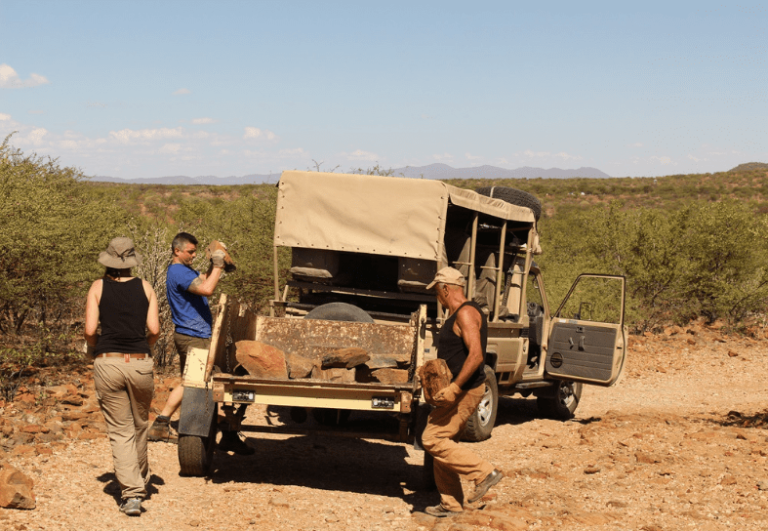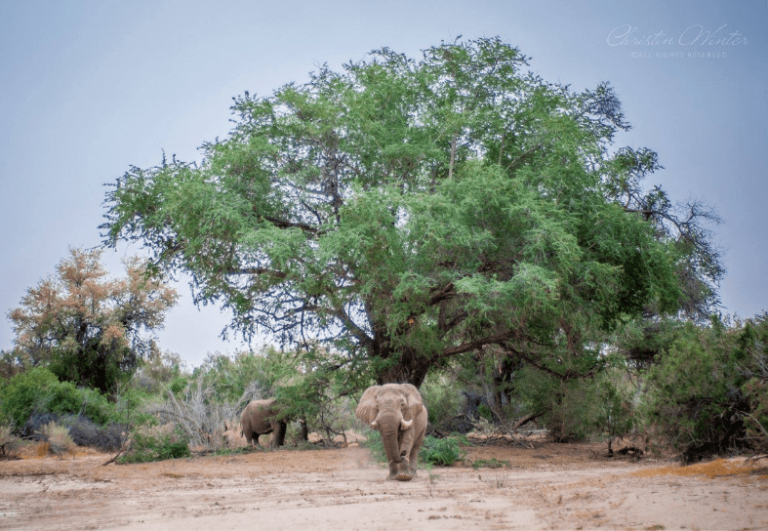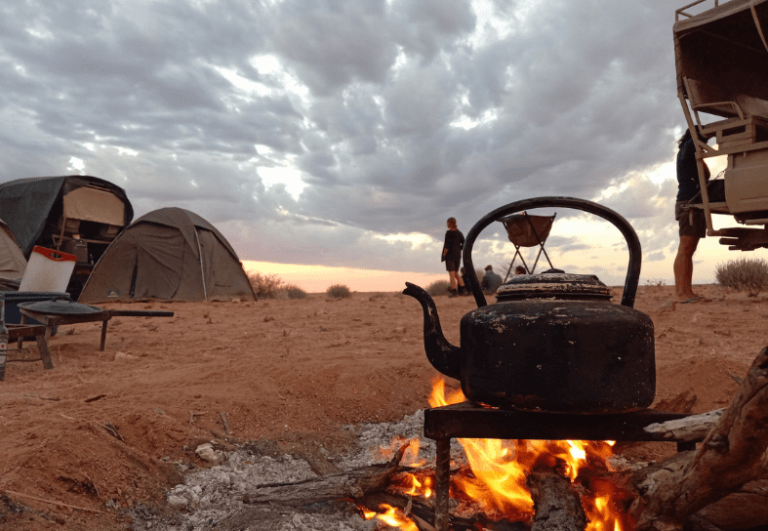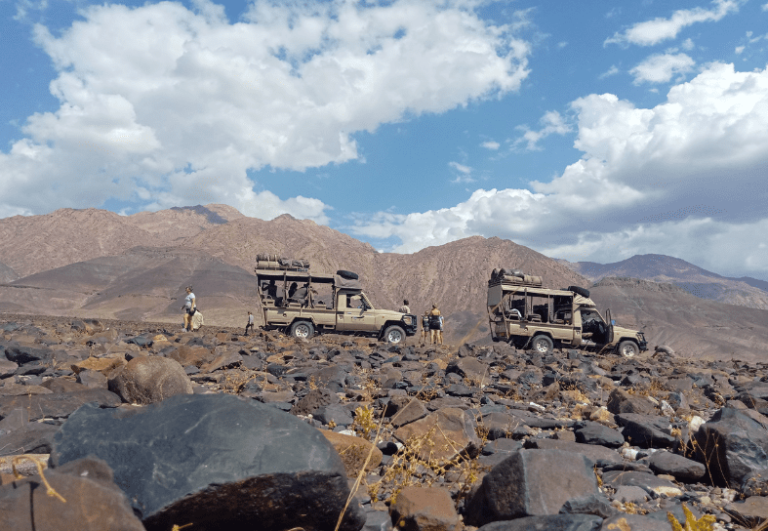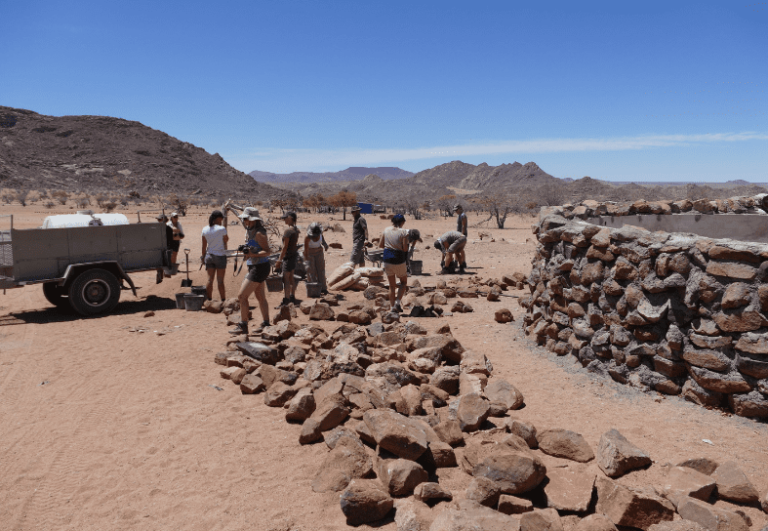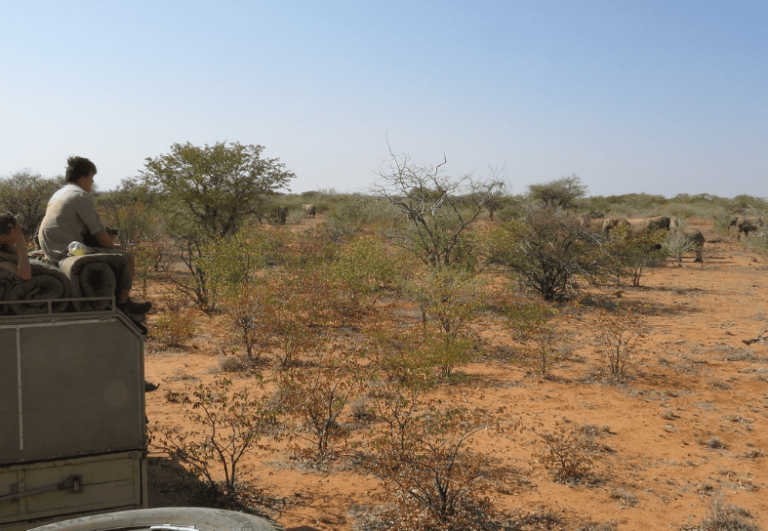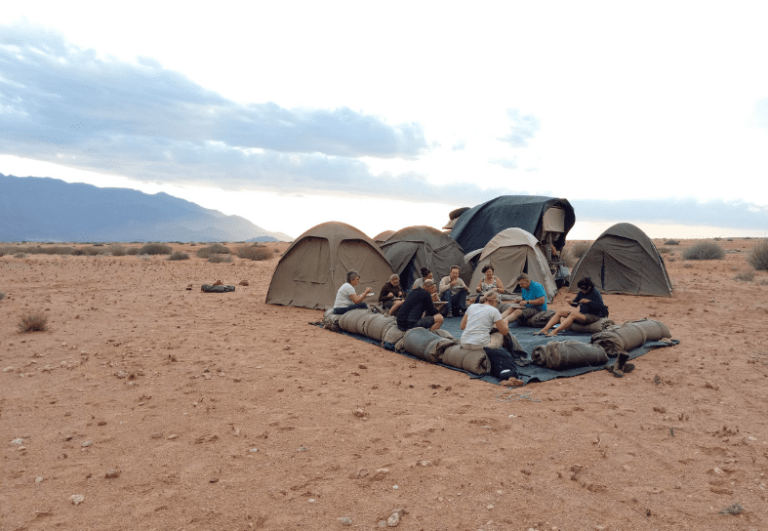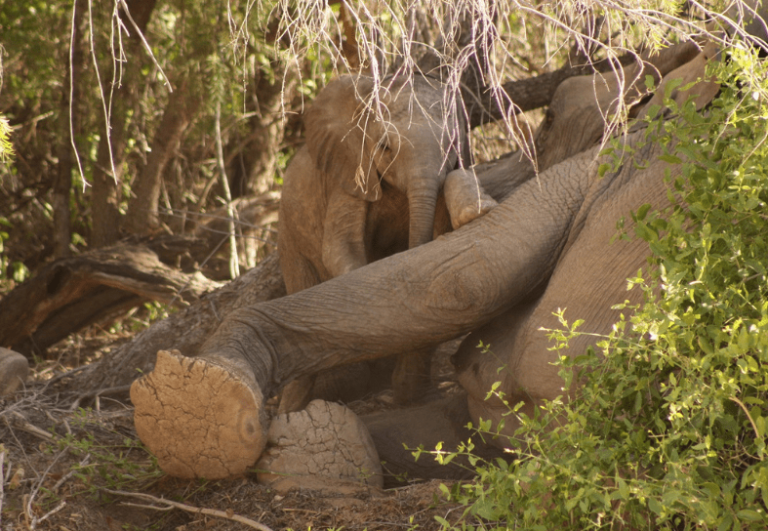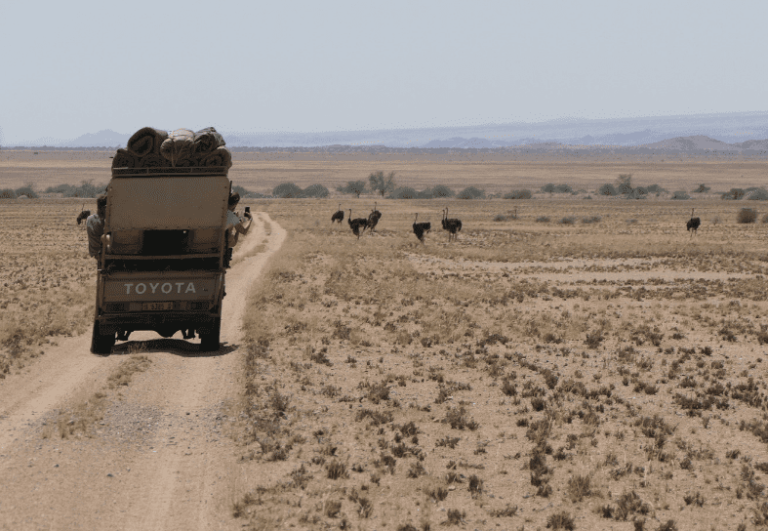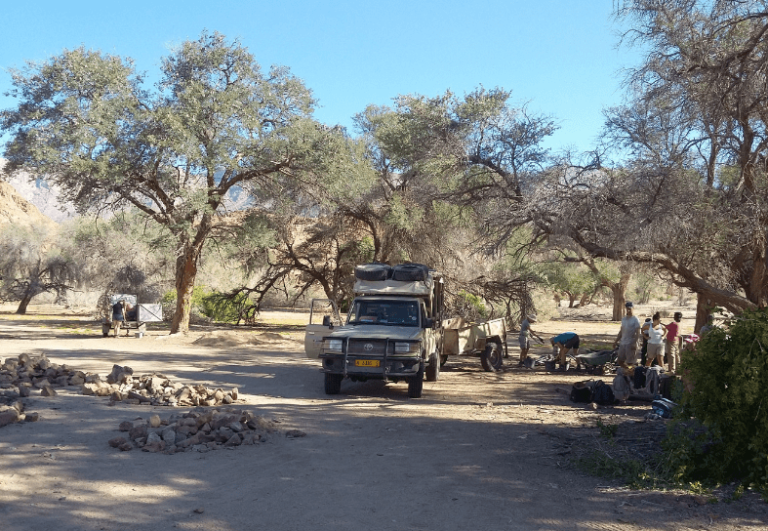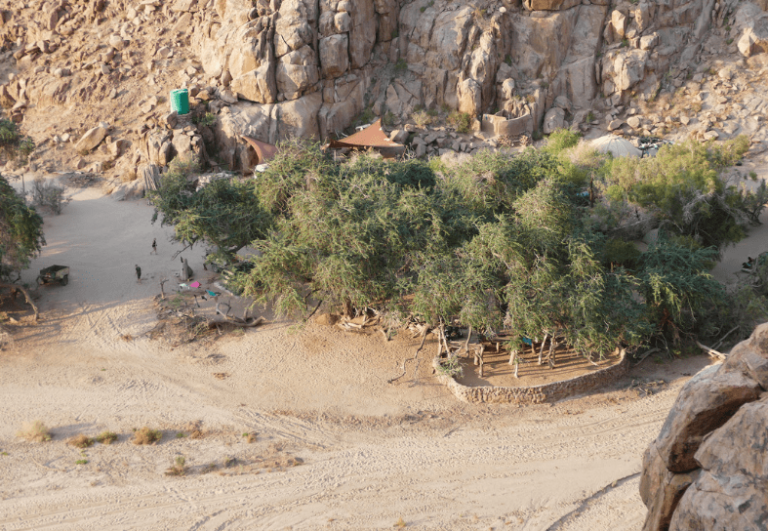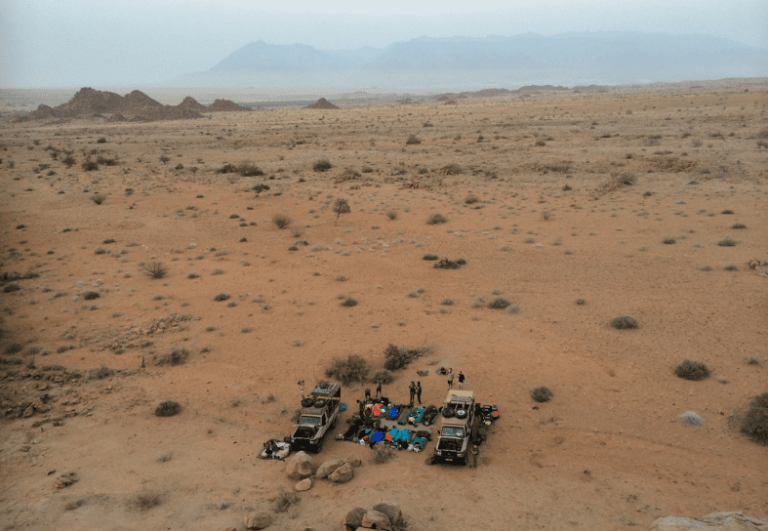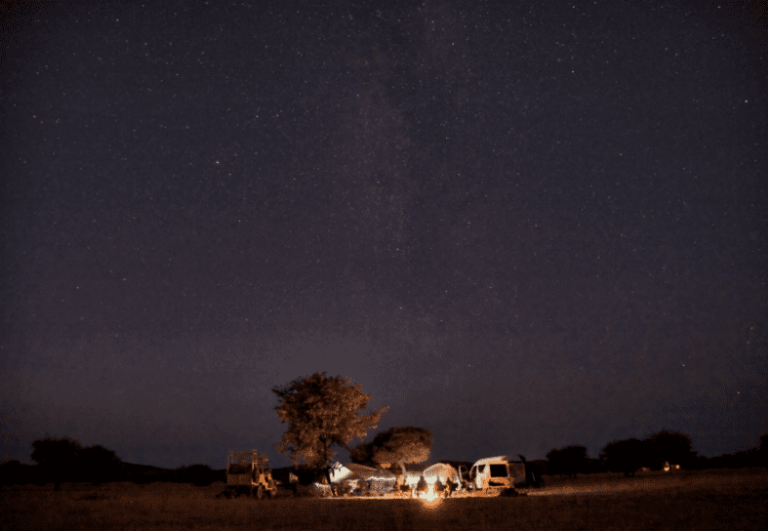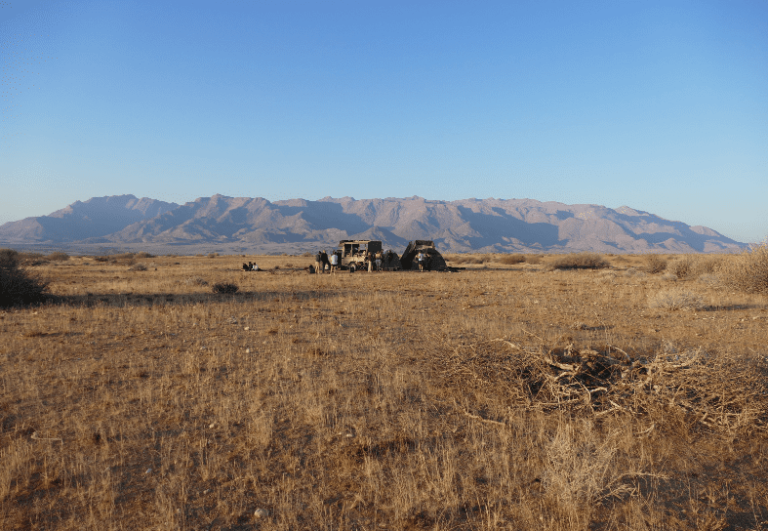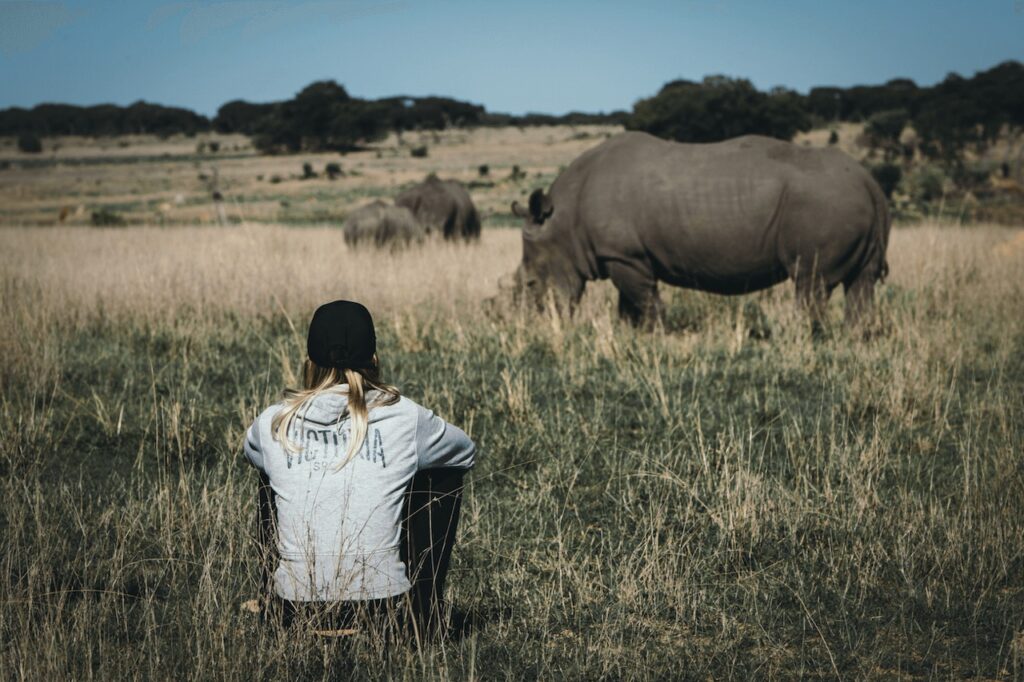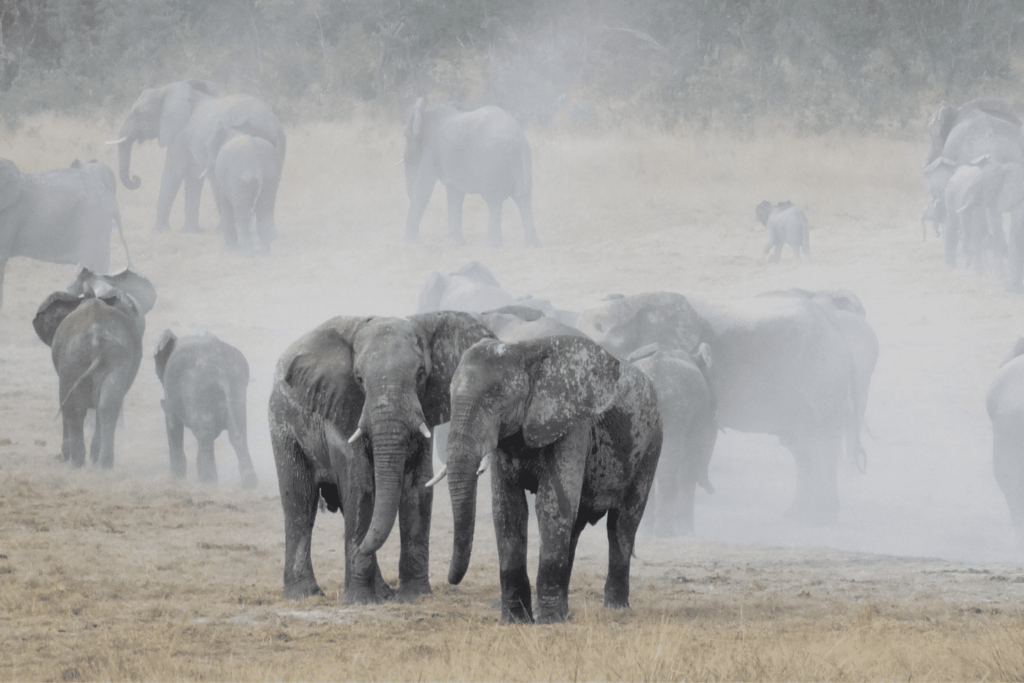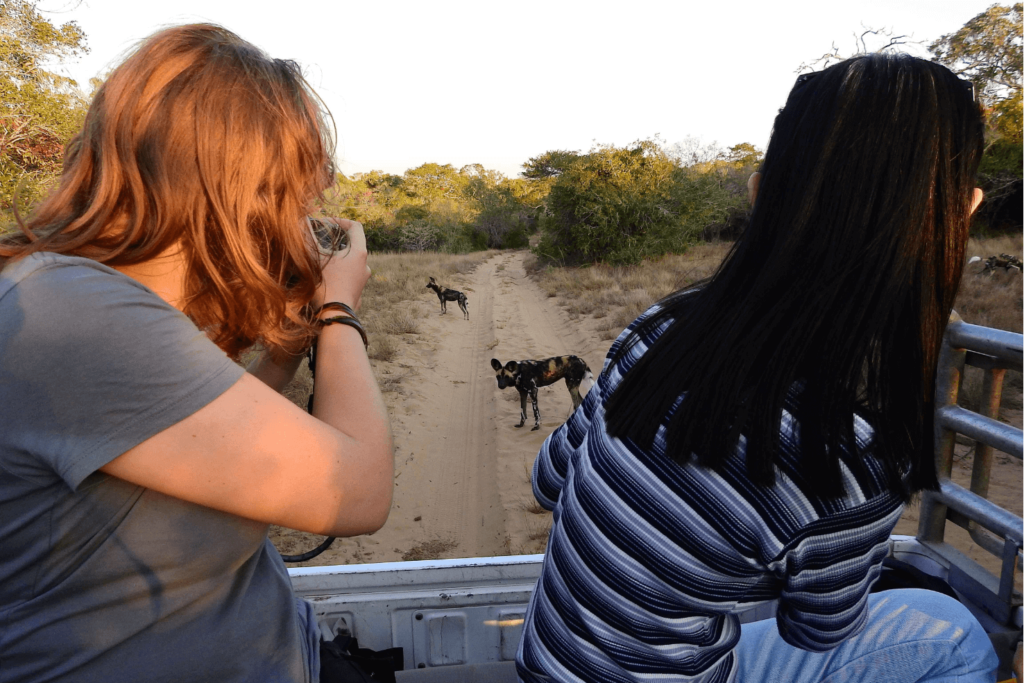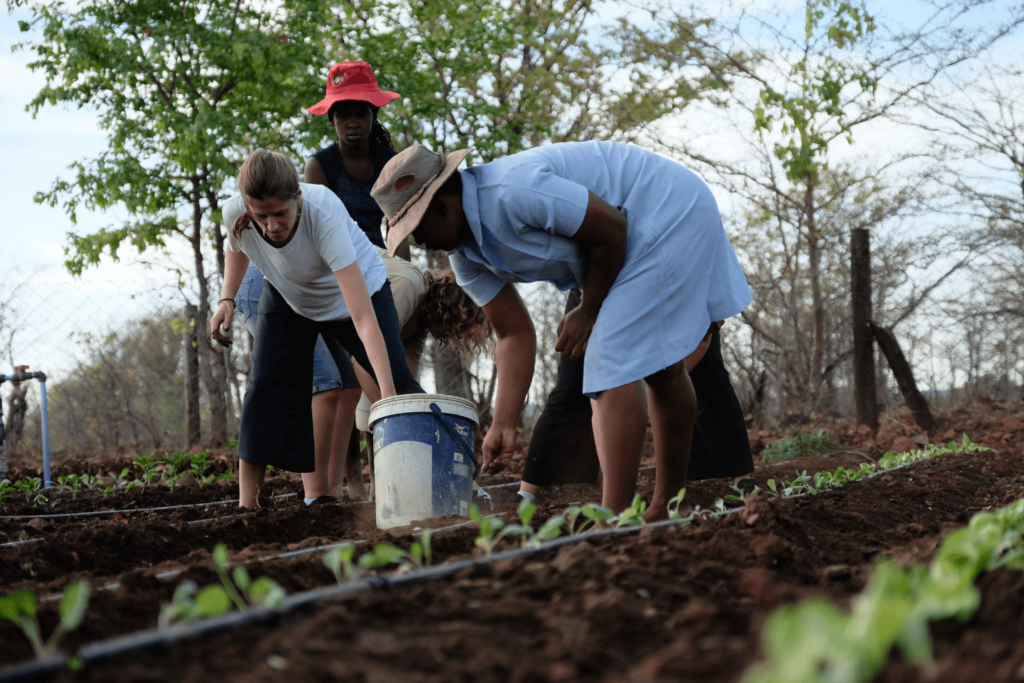Volunteer with Elephants
Elephant Conservation Project & Community Development
NAMIBIA
Namibia
2 - 12 weeks
Scheduled Mondays
Up to 14 people
Age 18+
From £950
Namibia
2 - 12 weeks
Mondays
Mondays
Up to 14 people
Max 14
Age 18+
From £950
What is this elephant conservation volunteer program about?
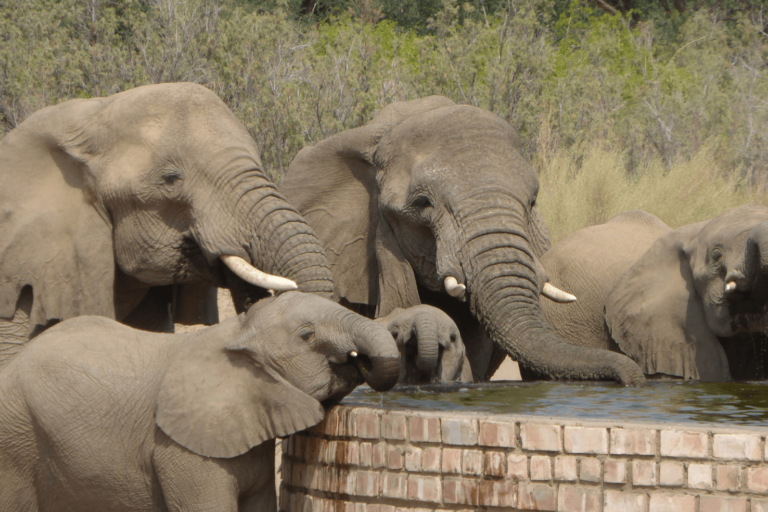
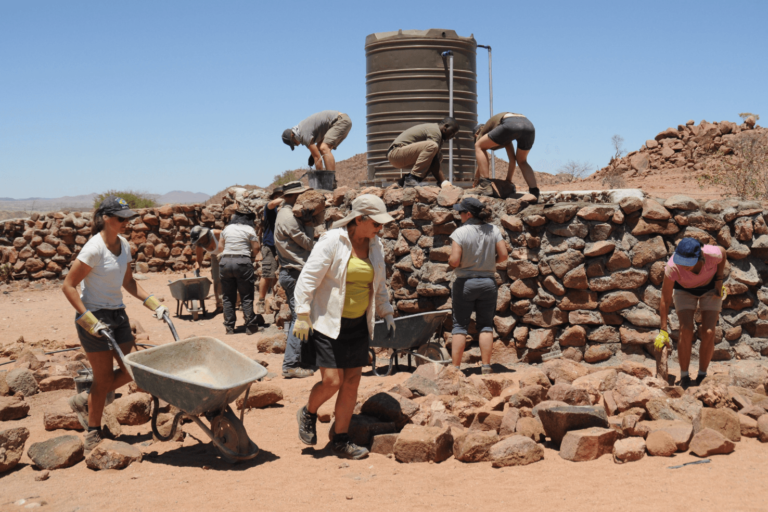
How will I be contributing when I volunteer with elephants?
What makes our elephant volunteer programs ethical?
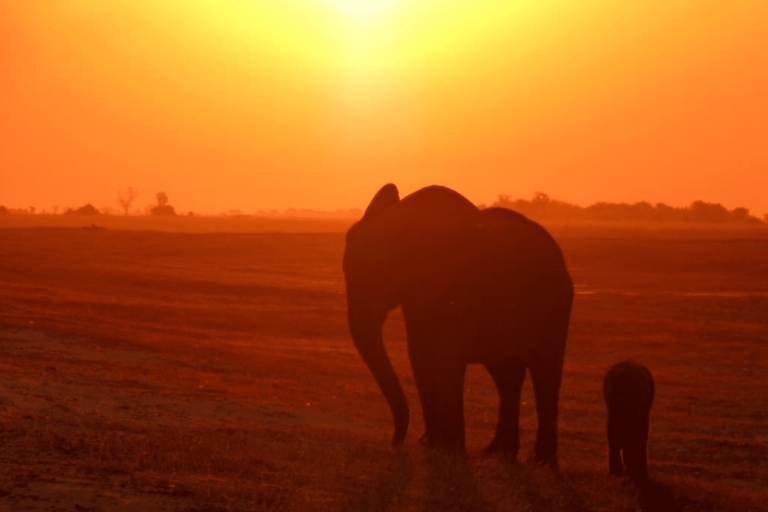
Project gallery
Project information
This elephant conservation project is very hands-on, focused on conserving the desert-adapted elephant through anti-conflict measures, education programmes, rural infrastructure support and water protection measures.
The desert-adapted elephant is found in only two countries in the world, Namibia and Mali, making this project an incredible opportunity to play a key role in preserving the African elephant population for the future.
Elephant volunteers will work in two-week blocks. Each two-week block is split into two parts: Building Week and Patrol Week.
Building Week:
Work with rural communities on water measures:
- Construct and repair protection walls around water points
- Dig new water points to divert elephants away from communities
- Build walls around homesteads, farms, crops, water tanks and water pumps
- Complete building and maintenance projects in schools: upgrade classrooms, repair elephant damage and build new facilities (toilets, boreholes etc)
- Live alongside rural communities in the stunning, remote Damaraland desert region
Support elephant education programmes:
- Help with school education programmes on elephant behaviour
- Work in schools teaching about elephant conservation, building a sense of pride in their unique elephant population and help deter the retaliatory killing of African elephants
- Observe elephants on drives with community members
Patrol Week:
Head into the vast Damaraland desert region to track the resident elephant herds in their natural habitat. This volunteer programme is the only elephant conservation organisation providing data to the Namibian government on elephants in the region.
- Elephant activity: Record movement patterns, births, deaths and mating behaviour
- Elephant location: Plot GPS locations of individual elephants and herds
- Elephant data: Collate data to identify at-risk farms and villages
For those volunteers completing more than one two-week rotation, the programme follows the same structure, but with a different focus on elephant patrol week. This ensures that volunteers who stay longer will experience different elephants and scenery and a variety of areas within Damaraland.
How is the two-week rotation structured?
Sunday (the day before your project starts)
On the Sunday evening volunteers will have a project briefing in Swakopmund where you will meet your team mates and staff members! You should arrive in Swakopmund on Sunday afternoon at the latest to attend the briefing.
Week 1: Monday (project start date)
Depart for base camp, a 4 hour drive north of Swakopmund. Settle into this stunning wilderness camp, before a full safety and project briefing about the work that you will be doing over the next two weeks.
Tuesday – Friday
Pack up and head into the desert to that week’s build site, approximately 1 hour from base camp. Meet local community members, and learn about the issues they have with elephants. Get stuck into building and maintenance projects and see first-hand the impact of the work that you are doing.
Saturday – Sunday
Return to base camp and spend a relaxing weekend resting and enjoying the endless Namibian sunshine. Accompany staff on a provisioning trip to the local town of Uis, where you will be able to use the internet, visit the swimming pool and go for lunch! Or you can stay at camp and explore the beautiful surrounding area.
On Sunday evening there is a briefing specific to the following week’s elephant patrol – where you will be going, which elephants you need to track, plus a safety briefing on behaviour around elephants.
Week 2: Monday – Friday
Leave early on Monday morning for elephant patrol and spend the week tracking the local herds of elephants. Return to base camp on Thursday and leave for Swakupmond on Friday morning.
Volunteers who are joining the next rotation will be required to report back to the project’s lodge on Sunday night, for a briefing with the next group of volunteers. You will be going to different areas and doing different things for the next Building Week and Patrol Week, so attendance at the briefing is compulsory.
When can I volunteer with elephants?
The elephant conservation project start dates are fixed, with regular project dates through the year. Volunteers should arrive in Swakopmund on the Sunday before the project start date (the day before), to ensure attendance at the Sunday evening briefing. Projects run from Mondays to the following Fridays.
2024 / 2025 pricing:
1 rotation (11 nights) – £950 / £980
2 rotations (25 nights) – £1,795 / £1,895
3 rotations (39 nights) – £2,550 / £2,700
4 rotations (53 nights) – £3,150 / £3,560
5 rotations (67 nights) – £3,750 / £4,330
6 rotations (81 nights) – £4,250 / £4,870
All prices are in GBP.
2024 project dates:
May 20th – 31st
June 3rd – 14th
June 17th – 28th
July 1st – 12th
July 15th – 26th
July 29th – August 9th
August 12th – 23rd
August 26th – September 6th
September 9th – 20th
September 23rd – October 4th
October 7th – 18th
October 21st – November 1st
November 4th – 15th
November 18th – 29th
December 2nd – 13th
2025 project dates:
January 6th – 17th
January 20th – 31st
February 3rd – 14th
February 17th – 28th
March 3rd – 14th
March 17th – 28th
March 31st – April 11th
April 14th – 25th
April 28th – May 9th
May 12th – 23rd
May 26th – June 6th
June 9th – 20th
June 23rd – July 4th
July 7th – 18th
July 21st – August 1st
August 4th – 15th
August 18th – 29th
September 1st – 12th
September 15th – 26th
September 29th – October 10th
October 13th – 24th
October 27th – November 7th
November 10th – 21st
November 24th – December 5th
December 8th – 19th
What’s included in the cost?
- Project contribution: this goes directly to our project partner and provides funding to ensure the programme can continue to meet its goals. For this project the project contribution will cover things like staff costs, equipment purchases, maintenance of buildings, equipment and vehicles, purchase of materials for building projects etc
- Accommodation and three meals per day
- Comprehensive orientation and supervision
- Practical instruction on building techniques and wildlife identification
- Equipment and materials required to do your work
What’s not included?
- Flights or travel to Namibia
- Transfers from Walvis Bay Airport (these can be arranged for an additional N$320 each way)
- Transfers from Windhoek Airport to Swakopmund (these can be arranged for an additional N$620 each way)
- Visa fees (if applicable)
- Travel insurance (compulsory)
- Personal expenses such as curios , drinks, snacks, activities in Swakopmund
- Pre and/or post programme accommodation
- Additional excursions
- Local SIM card and data / airtime bundles (optional)
- Administration fee (£40)
View our booking terms and conditions.
We suggest that volunteers arrange to stay with the group on Sunday night in Swakopmund. We will advise you which lodge the team is staying at upon booking – there will always be a choice of rooms to suit most budgets. We will arrange your booking for you and you will pay your bill on arrival.
During Build Week, you will live in a mobile camp close to the communities where you will be working. Tents are provided along with bed rolls – which include a mattress. You will need to bring your sleeping bag and pillow (a travel pillow is a must!). During warmer weather, most volunteers choose to sleep under the stars, under a tarpaulin, which is one of the highlights of the trip. Sleeping bags are available to hire if required.
This week, there is a long drop toilet, but as you will be out in the rural areas, the washing facilities are limited, so bring wet wipes and hand sanitiser. All cooking is done over a fire, and volunteers will work in pairs on kitchen duty – from the first cup of coffee of the day, to breakfast, lunch and dinner. No need to worry about what to serve, as you will be provided with very easy recipes.
At base camp during your changeover weekend, volunteers are accommodated in a permanent campsite, with flushing toilets and showers with hot and cold water. There are two elephant drinking dams in the camp and the elephants often wander through, which is a truly magical experience. There is also a large tree house, where you can choose to sleep on an outdoor platform, another highlight of the project.
During Elephant Patrol Week, mobile camps are basic, as you will be camping wild depending on the elephants’ location. Camps will always be in the most stunning spot, where you can enjoy the night skies, snug in your sleeping bag.
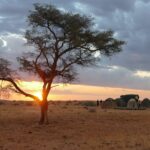
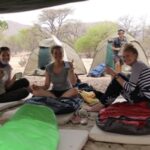
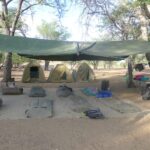
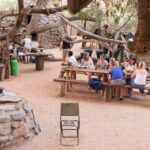
The elephant conservation project was established firstly to ensure that elephants and humans could successfully live side by side and secondly to reduce the human-wildlife conflict. The goals of the programme are threefold:
- To support local communities in infrastructure repairs and building projects
This includes constructing new walls around water points, allowing elephants access to water without breaking pipes or damaging pumps; constructing walls around crops and human settlements, upgrading classrooms and building new facilities as required.
- To monitor and report on the Damaraland elephant population
To understand the movements and territories of these elephants, plan which farms and smallholdings may be at risk and identify potential conflict situations, volunteers spend one full week every fortnight out in the bush on elephant patrol, to track herds, identify and locate individual elephants and build up a picture for accurate elephant management. These reports also assist in identifying farms and homesteads which are potentially at risk from future elephant conflict.
- To protect elephants by providing ongoing education to communities
For future generations to live side-by-side with the growing elephant population, the project has implemented an elephant education programme in schools and communities. This programme gives people the knowledge to live safely alongside the world’s largest land mammal, to reduce their fear and create pride in their wildlife heritage.
Elephant volunteers are instrumental in the project achieving its goals of saving elephants.
The elephant conservation project was founded in 2003 and is run by a Namibian-registered not-for-profit organisation. The organisation aims to conserve the desert elephant population in Southern Damaraland, Namibia, through long-term anti-conflict measures.
During the 1970’s, poaching in the region soared, the elephant ivory trade grew, and the elephant population was almost totally wiped out. Through ongoing conservation efforts to combat the illegal wildlife trade, a small population of elephants returned to the area in the mid 1990’s which, although fantastic for elephant conservation, created many problems for the subsistence communities and farmers in the region.
Many areas of Namibia are now home to significant elephant populations, but during the 20-year absence of elephants, local knowledge of their behaviour had been lost. This meant that communities were fearful of and unfamiliar with living in such close proximity with their large neighbours. It was suggested that all the elephants in the region should be removed, which is when the project stepped in.
Over the last 15 years and with the help of over 1,000 volunteers, 150 protection walls have been constructed in Damaraland, and new drinking points built to divert elephants away from community areas. In addition, the project has implemented an elephant training programme in rural schools and communities, to give people the knowledge to enable them to live peacefully alongside the local elephants.
Elephant numbers have continued to increase, and today there are over 600 elephants regularly moving around the area.
Volunteer reviews




Other volunteer projects you might be interested in
Rhino & Elephant Conservation
Join a unique conservation programme, dedicated to the protection of the black rhino. Play a vital role in securing the future of these iconic animals.
From $950
1 - 12 weeks
Big 5 Conservation, Zimbabwe
Volunteer as a Field Assistant in two of Zimbabwe’s most remote and unspoilt national parks. A unique volunteer opportunity for a true wilderness experience.
From $1,795
2 weeks
Endangered Wildlife Conservation
Support conservation work to protect endangered species in South Africa. Monitor priority species including lion, leopard, cheetah, rhino and wild dog.
From $1,625
2 - 16 weeks
Community Outreach, Victoria Falls
Volunteer in Victoria Falls and support grass-roots community action. Build strong communities through livelihood development and education projects.
From $850
1 - 12 weeks

